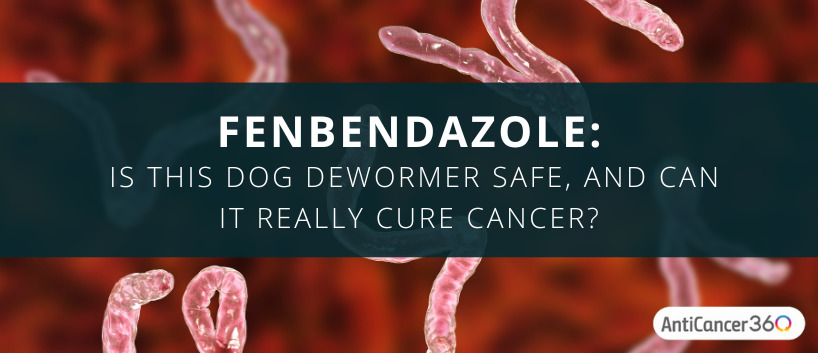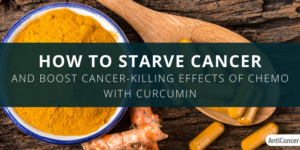Medical Disclaimer: The information in this article is meant for educational purposes only. It is not intended to replace a healthcare provider’s medical advice, diagnosis, or treatment. The use of veterinary medications in humans is not approved by the FDA and may not be safe. Consult a healthcare practitioner before taking any new medications.
When fighting late-stage or treatment-resistant cancer, you may find yourself sifting through stories, reports, and trials, looking for that one drug or supplement that will be the “cure-all.” This endless searching for the one thing you haven’t tried yet can be exhausting and overwhelming. You want to use every cancer-fighting tool available, but you also want to weigh the risks and benefits of your unique situation.
You may have come across several reports of drugs approved by the Food and Drug Administration (FDA) being repurposed and used “off-label” to fight treatment-resistant cancer. A drug is considered to be used “off-label” when a healthcare provider prescribes it for a purpose other than its FDA-approved uses. When one drug is found to be useful in treating a condition, such as cancer, we often wonder if another drug in the same class (family) will work too.
This becomes tricky when one drug is approved for human use, and another drug in the same family is only approved for use in animals. Such is the case with mebendazole and fenbendazole, two drugs that are both benzimidazole (BZD) anthelmintics (dewormers) with reported anti-cancer effects.
So, in today’s post, we’ll talk about fenbendazole and what the research shows about its potential anti-cancer effects. We’ll also discuss frequently asked questions about its safety, side effects, and alternatives.
What is Fenbendazole?
Fenbendazole, like albendazole and mebendazole, is an anthelmintic. Anthelmintics are drugs used to treat infections with parasites, more commonly called “worms.” The difference between these medications is that albendazole and mebendazole are FDA-approved for use in humans and fenbendazole is only FDA-approved for use in animals. Fenbendazole is an ingredient commonly found in veterinary drugs used in various animals as dewormers [1].
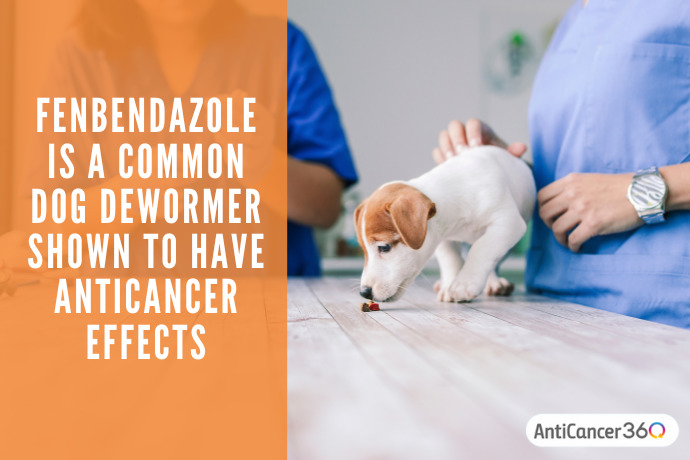
Fenbendazole grew in popularity when Joe Tippens, a man diagnosed with late-stage small cell lung cancer, claimed to be cured after taking the drug while enrolled in a clinical trial of another anti-cancer drug at the MD Anderson Cancer Center. In 2017, Joe Tippens was told he had three months to live. His cancer had spread to his liver, pancreas, bladder, stomach, neck, and bones. After being told at the beginning of the clinical trial that the new anti-cancer drug being tested might extend his life by a year, he claims his doctors were astonished after the trial when his test results showed he was cancer-free [2].
What Joe’s doctors didn’t know was that a veterinarian had suggested he try fenbendazole, a dog deworming drug. It was only after the trial ended that Joe told the doctors he had been taking the veterinary medication in addition to the study medication. He claims in his blog, “Get Busy Living,” that as of February 2022, he has been cancer-free for five years [3].
You may be wondering…“How could a pet dewormer kill cancer?” Let’s take a closer look at fenbendazole’s potential anti-tumor effects.
Potential Anticancer Effects of Fenbendazole
Antiparasitic drugs that are part of the BZD class, like fenbendazole, work by disrupting microtubule synthesis and stopping glucose (sugar) intake. This cuts off the parasite’s food source (glucose) [4], and the parasite dies. So, how does this relate to cancer cells?
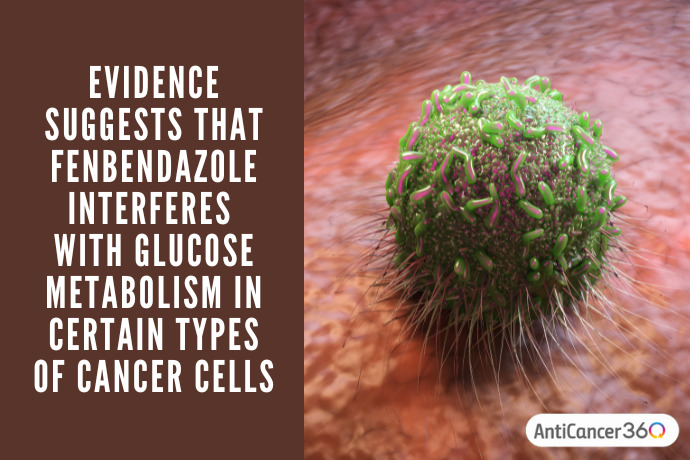
Cancer cells use glucose as a source of energy to survive, grow, and spread. These cells have changed their metabolism to increase the amount of glucose they can take in and process to create energy through a phenomenon called the Warburg Effect [5]. When cancer cells can’t produce enough energy, they die through a process called apoptosis (programmed cell death).
Evidence shows that fenbendazole and other BZDs interfere with cancer cell energy metabolism. Studies have shown these drugs can disrupt microtubule function, block glucose intake, decrease the number of glucose transporters, and reduce the activity of hexokinase (HKII). HKII is an important enzyme cancer cells use to break down glucose and produce energy [6],[7],[8].
Studies involving the use of fenbendazole as a form of cancer treatment are limited to cancer cell line studies and animal studies due to the drug’s status as “veterinary use only.” Animal studies suggest that not all types of cancer cells are sensitive to fenbendazole [9],[10],[11]. For example, one study shows fenbendazole didn’t affect glucose intake in a certain type of leukemia cells [12].
But, results from studies on non-small cell lung cancer cell lines, paraganglioma cell lines, and 5-fluorouracil-resistant colorectal cancer cells show increased cancer cell death in cells exposed to fenbendazole [13],[14],[15].

Additionally, a study using P493-6 human lymphoma cell lines in mice looked at tumor growth. The researchers compared the results when mice were fed fenbendazole alone, vitamins alone, and fenbendazole plus vitamin supplements. The mice that were fed fenbendazole plus vitamin supplements showed smaller tumor growth compared to the groups fed fenbendazole or vitamins alone [16].
Other preliminary studies show that fenbendazole may have a synergistic (additive) effect when used with a combination of dichloroacetate, 2 deoxyglucose, and Taxol (paclitaxel) [17]. More studies are needed on the use of fenbendazole with standard oncology treatments.
While BZDs like fenbendazole show promising antitumor potential from preclinical studies (studies in mice or human cancer cells), there’s currently not enough data on the benefit of their anti-cancer effects in humans. More research on ways to improve the absorption of these drugs in humans may lead to an even greater interest in their usefulness in the fight against cancer [18].
Frequently Asked Questions about Fenbendazole
Is fenbendazole safe for human use?
Fenbendazole is FDA-approved as an animal drug. When the FDA approves an animal drug, it means the drug is safe and effective when used according to the label. Each drug label is written specifically for the species (type of animal) it is approved for and includes the risks associated with using the drug [19]. Drugs that are FDA-approved for animals are not approved for use in humans.
While fenbendazole is generally well-tolerated in most animals, its safety in humans has not been fully determined. According to the FDA, fenbendazole should only be used by a veterinarian or when ordered by a veterinarian for an approved animal [20]. Taking veterinary fenbendazole may be harmful since these products are available in doses that may be unsafe for humans.
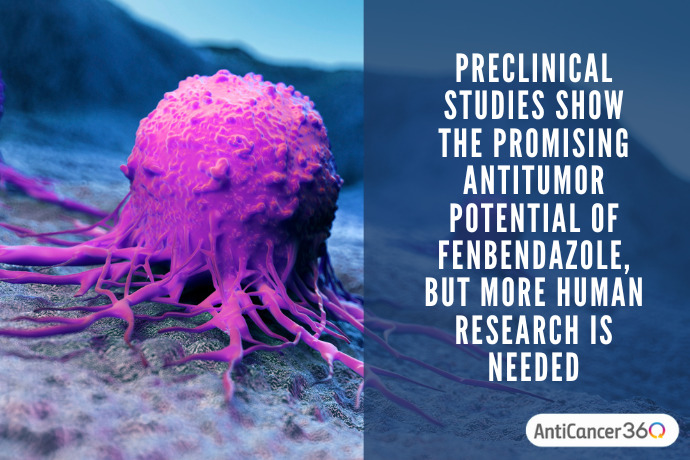
Fenbendazole may increase the risk of liver problems. In 2019, an 80-year-old woman self-administered fenbendazole based on information she and her family had seen on social media about the drug’s effectiveness in fighting lung cancer. About one month after starting the drug, she was admitted to the hospital for drug-induced liver injury. Fenbendazole was stopped, and her liver function slowly improved [21].
Can fenbendazole cure cancer?
So far, there isn’t enough evidence to determine if fenbendazole could cure cancer in animals or humans.
But, preliminary findings of animal and cell studies suggest that fenbendazole can interfere with tumor metabolism and growth in some, but not all, cancers [22]. Other studies suggest that fenbendazole may enhance the effects of certain chemotherapy drugs [23]. (For more details about this research, see the section above entitled Potential Anticancer Effects of Fenbendazole.)
Which drugs are similar to fenbendazole? Are there any alternatives approved for human use?
Yes. Two prescription drugs in the same therapeutic class as fenbendazole (BZD anthelmintics) are FDA-approved for human use: albendazole [24](Albenza) and mebendazole (Emverm) [25].
For more information on the antitumor possibilities of mebendazole, check out our blog article: Mebendazole: Can it help fight cancer?
What are the side effects of fenbendazole?
BZD anthelmintics (fenbendazole’s drug class) may cause the following common side effects [26]:
- Diarrhea
- Headaches
- Loss of appetite
- Nausea and vomiting
- Elevated liver enzymes, which can indicate liver problems
Some less common but potentially severe side effects of BZD anthelmintics include severe skin reactions, allergic reactions, liver injury, and anemia.
Should You Consider Taking Fenbendazole?
Fenbendazole is approved for veterinary use only, but research shows that it may have antitumor benefits that should be further explored. Other BZD anthelmintics approved for human use, such as mebendazole and albendazole, also display similar anti-cancer effects. The FDA warns that you should “never use medications intended for animals on yourself or other people.”
You should always discuss the potential benefits and risks of any medication or dietary supplement with your healthcare provider or integrative cancer treatment team. If they advise you to take fenbendazole, be sure to adhere to their recommended dosage limits and any monitoring plans, such as periodically checking your liver function.
When you are fighting late-stage or chemoresistant cancer, you want to fight cancer from every possible direction. This Aggressive Integrative Approach to fighting cancer may incorporate the off-label use of drugs and natural supplements, based on available evidence, without interfering with your oncology treatments.
Are You A Good Candidate For Our Program?
If you’d like to learn more about AntiCancer360 and see if we can help you… please watch our free online webinar to learn more about our approach. At the end, you’ll be able to schedule a free call with our team to discuss your case in detail.
Dr. Elizabeth Cambria is a 2004 graduate of the University of Pittsburgh School of Pharmacy. She has more than 20 years of clinical experience in community pharmacy and patient consultation. She is one of AntiCancer360’s consultant pharmacists and medical writers.
Elizabeth is passionate about patient education and believes knowledge is power in the pursuit of a healthier life. As both an ovarian cancer survivor and experienced pharmacist, she is dedicated to sharing her expert knowledge to educate patients and provide them with up-to-date advice. She believes in an integrative approach to preventative care and health management.
Elizabeth’s hobbies and interests include reading suspense novels, baking, and traveling. She hopes to one day accomplish her goal of visiting each and every state in the US. Elizabeth currently resides in Pennsylvania with her family, and their 3 rescued barn cats.

